By: Bolaji Adeniji
This novel pandemic has rattled most nations, taking different toll subject to their individual capacities to contain the multifaceted challenges thrown up by the ravenous virus.
The coronavirus pandemic (COVID-19) started from the lowly Wuhan province on the borderlines of China. Within weeks, it rankled into Europe through the susceptible Italy; and five months on became a global phenomenon with disruptive and fatal consequences.
By the time the communist nation eventually opened up to the World Health Organization (WHO) that an epidemic – in the form of a nebulous virus – was upon it, the world was already wedged, unprepared and caught prostrate in its wake.
Nations are now grappling with their numbers of infected persons with Spain, Italy, USA, United Kingdom, Germany and Iran recording huge casualties. Latest figures from the John Hopkins Centre indicates that there are 2,623,231 million confirmed cases worldwide with over 182,740 deaths as at the release of this article.
For Africa’s most populous nation – Nigeria, there is a steady rise of infected persons. According to the Nigerian Centre for Disease Control (NCDC), 873 cases have been recorded with attendant death of 28persons; as at the time of publishing this essay.
Nonetheless, figures of new infections and mortality are found to be on the increase as state governments increase their capacity to carry out more testing of susceptible citizens as community infection rises.
This novel pandemic has rattled most nations, taking different toll subject to their individual capacities to contain the multifaceted challenges thrown up by the ravenous virus.
The world economy is already in procedural recession with world crude prices selling in the negative while global supply chain is grossly dislocated through the shutdown of most businesses. Airports, seaports and land borders are closed to international and local movements – the exception being those conveying essential materials critical to stemming the tide of the virus and cargoes carrying food and drugs.
The lockdown in most nations predisposes that individuals and corporate organizations are not able to work effectively, thereby reducing or halting altogether, their capacity to make income.
Most nations are in dire welfare conditions, where national and subnational governments have contrived emergency economic stimulants and social welfare measures at providing diverse forms of palliatives to mitigate the sufferings of citizens.
America’s Donald Trumpcrafted an unprecedented economic rescue package of $2trillion that includes direct cash payments ($1200/adult and $500/child), loan guarantees, tax cuts and sundry domestic obligation freebies to citizens – by way of policy and acts of congress. In Italy, after initial relief roll-outs, finance minister, Roberto Gualtieri announced a fresh $28billion stimulus package of $660 recurring monthly payment to workers and self-employed, with another 5billion-euros loan guarantees to avoid a credit crunch.
Germany, which is about opening back its economy, signed off an $800billion package as well as loans, guarantees and long term credits to keep small businesses afloat. Its economic minister, Peter Altmeirsaid something profound, “We promise that we will not fail because of lack of money and political will”.
The United Kingdom stimulus package as unveiled by Chancellor of Exchequer, Rishi Sunak, include a 330billion pounds (about 15% of its GDP) for state-backed loans, VAT holiday, 60billion pounds to self-employed at about 80% of their average earnings and another 30billion pounds emergency spending on healthcare and food banks.
Nigeria’s contemporary, India is reported to have pushed its banks to approve as much as 600billion rupees ($8.1billion) of loans in March while the Reserve Bank of India announced Long Term Repo Operation (LTRO) to boost lending and cut down interest rates. Several other nations have announced and already implementing similar COVID-19 interventions; in addition to the provision of food.
More poignantly, international organization and global financial institutions have also weighed in on emergency fund intermediations. The IMF prepared $1trillion in mobilized fund for access by its 189 members to alleviate the pandemic. The European Union (EU) on its part converted the 400billion-euros it earlier planned to use in deflating the European sovereign debt crisis to a coronavirus investment initiative fund; part of which Nigeria benefitted 50million-euros (N21billion) to fight coronavirus, according to Ambassador Ketil Karlsen who led an EU delegation to the statehouse to meet President Muhammadu Buhari. Notably, also, $33million dollars also came in from Global Fund among other inflows.
The foregoing measures by different nations highlight the importance accorded the disease and how bullish they have been mitigating its effect on citizens and the economy. Nigeria, a sprouting hotbed of the contagion have announced varieties of relief measures to tackle impacts of the pandemic on citizens and its fiscal stability. In his first nationwide broadcast on coronavirus, President Buhari announced a N15billion national response strategy funding on the healthcare part to contain the spread.
Also included was moratoriums on loans repayable on social aids like Tradermoni, FarmerMoni, MarketMoni, Federal Government-backed loans via Bank of Industry, Bank of Agriculture and the Export-Import bank. Other stimulus include 2-months payment of the conditional cash transfer (of N20,000/vulnerable persons) under the National Social Investment Programme, N-SIP – a scheme which according to the Minister of Humanitarian Affairs& Disaster Management, Hajia Sadiya Farouq– have gulped over N150billion already.
Godwin Emefiele, the country’s apex bank (CBN)Governor, announced among other fiscal containment initiatives and monetary policy restructuring, stimulus fund of N1trillion while the FG depleted the Sovereign Wealth Fund by $150million and an additional N50billion intervention fund for individuals and small businesses. There is also the outlandish $6.9billion multilateral loan it wants to seek – all to fight COVID-19 and mitigate economic impact.
Expectedly, there has also been the deployment of raw food distribution across the nation; with many state governments following in tow – in their own brand of palliatives gale. The hope is that these compendia of initiatives and funds are deployed as intended.
Expectedly, there has also been the deployment of raw food distribution across the nation; with many state governments following in tow – in their own brand of palliatives gale. The hope is that these compendia of initiatives and funds are deployed as intended.
A month into the lockdown in Nigeria, the chicken has come home to roost and some realities of our material situation and social frailties are coming to the fore. Beyond the immediate threat to life that COVID-19 portends, one major reality it has exposed is the abiding poverty and inequality in the nation; where effectively, over 100 million (60%) of its people live a subsistence lifestyle and cannot be said to utilize $2 a day according to World Bank statistics. Precipitously also, the country is faced with the stark reality of the infrastructure gap especially investments in human capital development – education and healthcare.
Suddenly, the country exposed itself to have lived a lie of the data and statistics on which we previously hinged our national planning, development modelling and distribution of democratic dividends.
It is now apparent that what differentiates between the vulnerable and privileged is a thin line, and in this instance – a few weeks of low economic activity, the vast majority of the populace have become needy and beggarly. The level of begging and ‘executive almajiri ’in the nation at this time is humongous, making a mockery of the real poverty index of our huge population.
When HumanitarianMinisterboasted of distributing N100billion to poor people within one week, not a few Nigerians wondered who and where these beneficiaries are and which data was relied on for the selection process.
President Buhari in his second COVID-19 national broadcast ordered that the social register be upgraded from 2.6 million to 3.6 million and Nigerians again wondered if such numbers existed earlier, how many people are captured in the social register for the poor and how did they come by it?
It must be recalled that Special Adviser on Social Investment Programme (SIP) to the President, Maryam Uwais said in 2019 that the register had slightly over 700,000 persons, so where is the geometric jump-up coming from? It is nothing but the continuous perpetuation of entrenched systemic corruption which the current administration, like its predecessors, has been ingenious to address.
MDAs like the National Bureau of Statistics (NBS), National Directorate of Employment (NDE), Ministry of Budget and National Planning and the special purpose Ministry of Humanitarian Affairs, have all failed to do what is most critical to their functions – which is data and statistics of Nigerians.
The country failed to muster the political will to investment on the technology needed to ramp up Nigerians into an embedded“data bank” that is activated from childbirth and automates till death. Sadly, some of our political elite have citizenship with social security numbers of other nations, from where they receive benefits accruable as a citizen.
All the stimulus package stated earlier in this essay by other nations are figures traceable to the proper social delineation of their national population and class differences. The state governments are the worst culprit where planning is almost non-existent, hence what we have had is a brutish distribution of food palliatives without empirical data and mapping. The struggle, inadequacy and lack of access to the palliatives by the real vulnerable are symptomatic of the data dearth.
Another sad reality which COVID-19 has blown out is the hypocrisy of the political class and their predatory private sector collaborators. It is reprehensible that despite the perennial imprudence shown by successive governments, the private sector players did well to rally over N21billion, but found it plausible to turn such monies to the government; when they could have directly deployed it to ameliorate the plight of citizens.
Their counterparts in other countries channelled most of their donations to duly registered charity organizations that utilized it to organize food banks, health kits and domestic supplies for onward distribution to people at this period. On the other hand, they also donated to specific healthcare-biased interventions and humanitarian support.
The likes of Mark Zuckerberg($30million), Jeff Bezos of Amazon ($100million), Bill &Melinda Gate Foundation ($255million), Jack Dorsey of Twitter ($1billion) and Michael Dell ($100million); among several others –gave towards hunger relief, medicare and assistance to those on the COVID-19 frontline, as well as small businesses.
All the fund are being operated by charities and has proven to be the bedrock of palliative support over and above what the Trump Administration, for instance, is doing in America. India’s technology magnate, Azim Premji gave $132million to food and medical support systems. Spanish Amancio Ortega did $68million to support medical equipment while Nicky Oppenheimer of South Africa offered $57.1million to help small businesses and affected employees – according to President Cyril Ramaphosa.
This writer is not crying wolf where there is none, as it is observed that the monies being spent under the SIP programme have had yearly budgets since coming upstream in 2016 and sometimes last year, the recovered Abacha loot of $322million was also allocated to fund the social intervention project; pray, therefore, where has the donations for COVID-19 gone to? Are all being utilized by the NCDC and the Presidential task force on COVID-19?
Abba Kyari: ‘Aisha Buhari will tackle ‘cabal’, take over Aso Rock– Primate Ayodele
Most state governments are more liable in this regard. They do not even have any enabling framework and legislative appropriation under which the monies are being spent to fight the scourge? That brings again to focus on the issue of accountability and transparency in governance. So long governments at all levels continue to run under dark themes, the cynicism and mistrust of citizens will continue to grow and will ultimately hamper development.
Few days ago, Nigeria sadly lost Mr Abba Kyari, the Chief of Staff to President Buhari who died of complications from coronavirus at a hospital in Lagos. His untimely demise raised the important question of the state of Nigeria’s healthcare system (without prejudice to the particular hospital).
If the case was that airports were not closed, Kyari would have been on the plane to one of the best facilities in US, UK or Germany to rescue his life perchance; but the extant circumstance confined him to the best of local care. This is the same experience of some state governors and wealthy Nigerians who are constrained to manage themselves within, be it for the pandemic or other medical conditions; people who ordinarily will fly out to meet foreign doctors at the first glimpse of body pain.
COVID-19 have become a leveller and makeshift isolation centres are the common denominator to all infected persons. It should be incumbent on government now that mandatory investment on Healthcare is exigent. Primary healthcare should be the top priority to state governments while massive investment on the tertiary facilities must not be sparred.
In an online article sometime last week, I averred that at the end of this pandemic, it will be time for the government to calibrate is priorities and know that what matters to human existence is simple enough and not the medley of misdirected activities embarked on around here in the name of governance. Chapter 2of the Nigerian constitution under the fundamental objectives and directive principles of state policy, section 14 subsection 2(b) alluded that, “The security and welfare of the people shall be the primary purpose of government”.
While security is a first-line responsibility, the welfare part suggests that citizens should be able to feed, enjoy healthcare, live in decent homes, make a sustainable living and have a good education. Government must now use this opportunity to face its priority being security, healthcare, education and addressing the big monster of poverty.
The post-coronavirus world economy will be hard-hitting. For a poor and sick nation like Nigeria, dragging most of its people out of that hole is imperative and expedient going forward. Central to this objective is strong and honest leadership that can muster the political will to pursue demographic data, entrench transparency and massively invest in social welfare and human capital development.
In the meantime, a concerted effort is needed to curtail the pandemic and all hands must be on deck for this one. The government on its part must display a high dose of accountability and transparency in deploying every fund that comes its way towards clinical containment, feeding the people and stimulating the economy at this time.
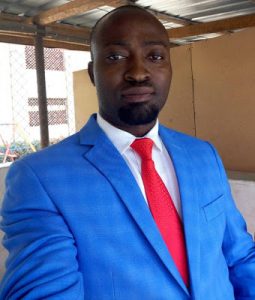
bolajipundit@gmail.com



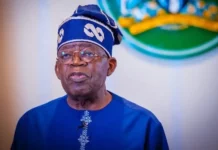
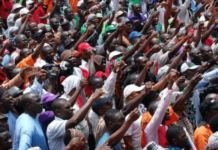
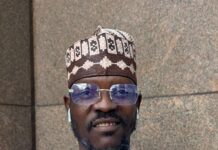




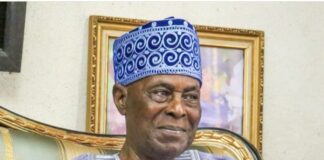


![Proposed New LGs: Otta North West, Ijebu North Central, Ughelli South Among Over 100 LGAs Submitted to NASS [Full List]](https://newsheadline247.com/wp-content/uploads/2026/01/NASS-299x160.jpg)

